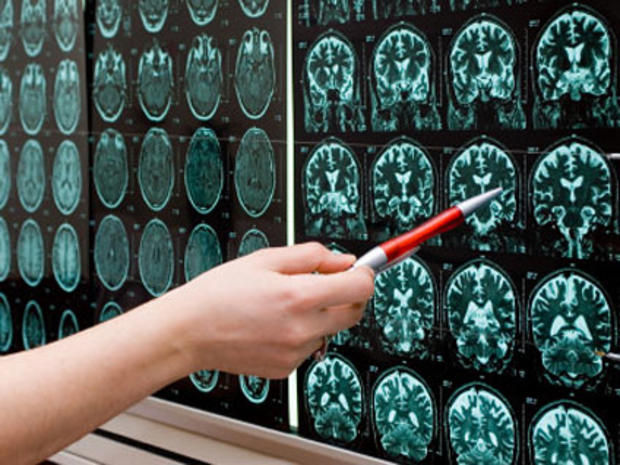Stroke study shows drugs beat stents for prevention
(CBS) Stents have made a big splash in treating heart disease, with doctors using the tiny mesh tubes to prop open arteries in the heart. To find out if stents implanted in arteries in the brain would prevent strokes, researchers launched a large-scale study looking at high-risk stroke patients.
Things didn't go as planned...
"We hypothesized that stenting would be more effective than medical therapy and found exactly the opposite," study co-author Dr. Marc I. Chimowitz, a professor of neurology at the Medical University of South Carolina, told HealthDay.
The study found an aggressive medical treatment consisting of blood pressure and cholesterol medications and blood thinners, was superior in preventing strokes and death compared to a stent.
For the study - published in the September 7 issue of the New England Journal of Medicine - 451 high-risk stroke patients between 30 and 80 years old were assigned to either drug therapy or a combination of drugs with a stent implantation.
Nearly 15 percent of participants who received stents had a stroke or died within 30 days of the study, prompting researchers to shut it down.
The stent in the study - the Gateway-Wingspan intracranial angioplasty and stenting system, made by Stryker Corp. - is the only system currently approved by the FDA for certain high-risk stroke patients. It was approved in 2005 on the basis of a humanitarian exemption, and thousands have since been surgically implanted.
Stryker stands behind its product, saying in a statement, "Stryker continues to support the Wingspan Stent System as an FDA-approved Humanitarian Use Device."
The findings don't necessarily signal the end of stents for stroke patients. However, future research might focus on improving stent design or better surgical implantation techniques.
"This is certainly not the final say on managing this disease," study co-author Dr. Michael F. Waters, director of the stroke program at the University of Florida, said in a written statement. "This is another piece of the puzzle that helps to guide our hand."
Every 40 minutes an American suffers a stroke and nearly one in 17 Americans dies from one each year. People living in the southeast have higher rates of stroke, with health officials dubbing the region the "Stroke Belt." In addition to obesity, smoking, diabetes, and high blood pressure, age increases risk for stroke. Nearly three-quarters of all strokes occur in people over 65, with the risk of having a stroke doubling each decade after 55.
The CDC has more on strokes.
